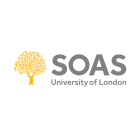The blunt truth about the politics of climate change is that no country will want to sacrifice its economy in order to meet this challenge.
Tony Blair, address to the 2005 G8 climate change summit in London, as reported by David Adam, "Blair signals shift over climate change", The Guardian, 1 November 2005.

